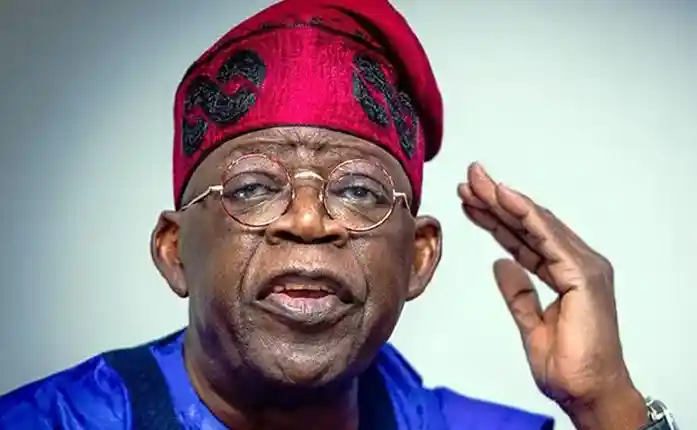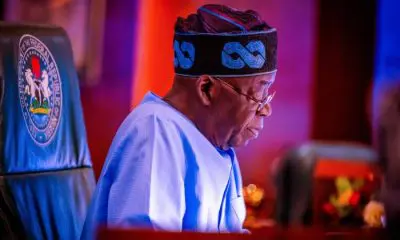Bola Tinubu, the president-elect of Nigeria, has recently made a statement claiming that the Presidential Election Petition Tribunal (PEPT) did not have the authority to enforce the decision of a United States District court. The US court had ordered the forfeiture of $460,000 from some US bank accounts that were allegedly linked to Tinubu back in 1993.
In response to the petition filed by Peter Obi, the Labour Party presidential candidate, regarding the outcome of the February 25 presidential election, Tinubu argued that the US court order in question was not registered in any Nigerian court.
In a recent development, the All Progressives Congress (APC) has aligned with the Independent National Electoral Commission (INEC) to request the dismissal of the petition filed by the Peoples Democratic Party (PDP) and its candidate, Atiku Abubakar. The petition challenges the declaration of Tinubu as the winner of the February 25 presidential election.
In a recent development, the ruling party has filed a Preliminary Objection to a petition, stating that the tribunal lacks the necessary jurisdiction to adjudicate on the matter. The party has claimed that the petition lacks the required facts and particulars as mandated by law.
According to the petition filed by Obi and LP, it was argued that Tinubu’s eligibility to run for the presidential election was questionable due to the forfeiture of funds in accounts linked to him. As a result, they are calling for his disqualification and for all votes cast in his favour to be considered as wasted votes.
According to the legal team headed by Chief Wole Olanipekun [SAN], both the Vice President-elect and his client have filed a response stating that the US District Court’s ruling cannot be implemented in Nigeria as it has not been registered or domesticated in any Nigerian court.
In a recent statement, the individual highlighted that the ruling issued on October 4, 1993, did not originate from a court or tribunal established under Section 6 of the 1999 Constitution. Additionally, they asserted that the verdict did not pertain to any cause of action or offence established by an Act of the National Assembly or state law, subsidiary legislation, or instrument under the provisions of a Nigerian law or written law in Nigeria.
According to the respondent’s legal counsel, the Nigerian court does not have the authority to enforce the decision made by the US district court as stated in the petition. This is because the decision has not been registered or domesticated in any Nigerian court.
According to the second and third respondents, Tinubu was not involved in the case No 93C-4483 as a party or defendant.
According to paragraph 28 of the petition, the United States district court decision in case No 93C-4483 delivered on October 4, 1993 only listed certain parties, and the 2nd respondent was not among them.
According to Tinubu, the petitioners failed to provide a justifiable cause of action that falls within the purview of Sections 131, 134, and 137 of the 1999 Constitution, as well as Section 134 of the Electoral Act, 2022.
According to the respondents, the petitioners’ case does not reveal any disqualifying factor as stated in Section 137. They argue that Tinubu has not been sentenced to death by any competent court or tribunal in Nigeria or any other jurisdiction.
According to official records, the second respondent has not been convicted of any offence involving dishonesty or fraud by any competent court or tribunal in Nigeria and is not currently serving a sentence of imprisonment or fine for such an offence.
The Constitution’s provision that requires cases to be presented within 10 years before the election date has adversely affected the cases of Tinubu and Shettima.
According to the respondents, the case in question is not a criminal forfeiture case under 18 USC 982, which pertains to criminal forfeiture. Rather, it is a civil forfeiture case under 18 USC 981, in which the US government acts as a civil plaintiff against specific properties, rather than individuals, as defendants.
According to Tinubu, the final orders issued by Judge John Nordberg were based on a settlement agreement, similar to a consent judgement, under the court’s civil jurisdiction in 18 USC 981.
According to the defendant, the petition and its supporting pleadings were deemed irrelevant and incapable of providing any advantage to the petitioners, as he requested the court to dismiss the case.
In response to the request for disqualification of Tinubu based on the alleged unlawful nomination of his running mate, the respondents argued that the petitioners, who are not members of the APC, do not have the legal standing to challenge the nomination of candidates on the APC platform.
According to sources, the case involving Obi and LP has now become statute barred. It has been reported that they failed to challenge the nomination of the second respondent within the 14-day timeframe specified in the petition.
The legal experts claimed the Court of Appeal, sitting as the tribunal, does not have jurisdiction to address pre-election issues related to the qualifications of Tinubu and Shettima.
The submission made by the concerned parties, the allegation of double nomination of an associate/running mate is not a valid reason for disqualifying the winner of a presidential election under the 1999 Constitution.
The All Progressives Congress (APC) has responded to the petition filed by Atiku and the People’s Democratic Party (PDP). The APC’s lead counsel, Lateef Fagbemi SAN, argued that the petitioners’ paragraph 146 in support of Ground 4 on non-qualification is insufficient. Fagbemi stated that meeting the constitutional threshold is not a prerequisite for contesting an election.
The All Progressives Congress (APC) has raised concerns over the non-compliance issue in the ongoing petition case. According to the party, the petitioners’ failure to provide specific details such as names, codes, and polling units where the alleged malpractices, non-compliance, and irregularities occurred is a violation of the Electoral Act, 2022. The APC has argued that this renders the petition incompetent and an abuse of court process.
The petition, in its current form, lacks crucial details and evidence to substantiate the accusations of corrupt practises, violence, and non-compliance with the Electoral Act. According to the All Progressives Congress (APC), the petition lacks a reasonable cause of action due to the insufficient facts presented to support each of the four grounds on which it is based.






